Putting random stuff in your basement is easy—deciding what to do with it is hard. Here’s what an expert organizer says you can and should toss, guilt-free.
25 Things in Your Basement That a Professional Organizer Would Throw Out

Dump the junk!
We’ve all done it: We go on a cleaning binge because people are coming over, and at some point, we run out of time and just start tossing stuff into the cellar. Or we’re tired of seeing clutter around the house but don’t know what to do with it, so we put it downstairs, swearing we’ll deal with it properly soon. The problem is that it’s all too easy to forget about that stuff once it’s there, and then your basement starts resembling a giant storage closet. Whether finished or unfinished, the lower level of your home is not meant to be a long-term storage spot for dried-up paint cans, mildewed cardboard boxes, and ancient electronics. As a professional organizer, I have a few ideas about which items you can throw out right now—without regret. It’s not as difficult as you think. Once your basement is in tip-top shape, here are another things in your house that you should throw out.
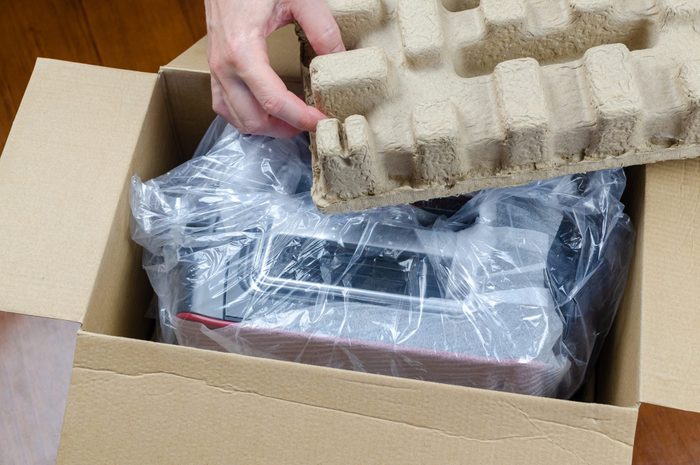
Appliance boxes
Most of us are in the habit of hanging onto the packaging from expensive appliances or electronics, just in case they need to go back. But if a cardboard box has been hanging out in your basement for months, it’s time to let it go. Especially if the product is past its warranty period, you can feel confident about recycling it. Breaking down a big stack of boxes will give you an instant sense of accomplishment. And it frees up space, so you’ll have room to move around while you find more things to throw out. By the way, here’s a quick list of what can and can’t be recycled.
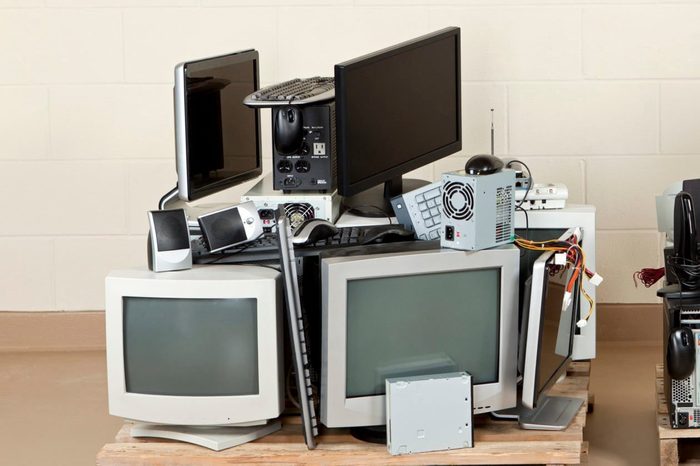
Old or broken electronics
Is it even a basement if you don’t have a console television or a broken VCR sitting down there? Yes—and no, they’re not worth keeping because they’re “vintage.” Stop rationalizing and start getting rid of your unusable things. Not knowing how to properly dispose of old and broken electronics might account for the fact that you’ve accumulated such a big pile of them. Check with your town about junk days, or find out how to recycle or donate your outdated tech devices.
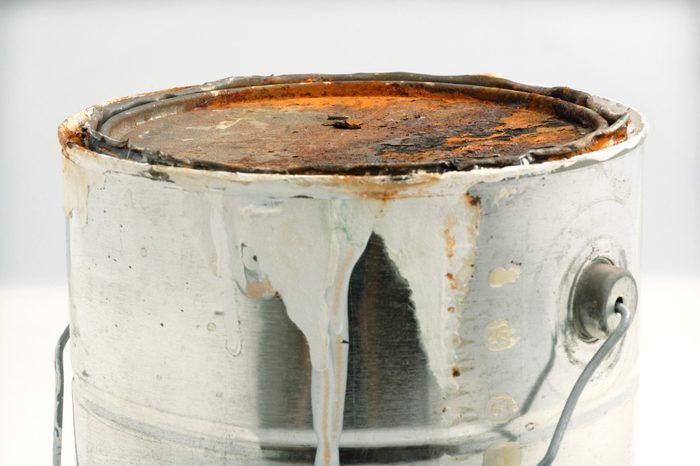
Cans of paint
Basements tend to be a repository for hazardous materials—everything from mostly empty cans of house paint to expired batteries, insecticides, weed killers, and maybe even a random car tire. Just like old electronics, these items that you no longer need, expired or not, should be disposed of properly. And that doesn’t mean just tossing them in the trash. So, what should you do? Most towns offer a hazardous-waste disposal option; if yours doesn’t, search the website Earth911 for local options.
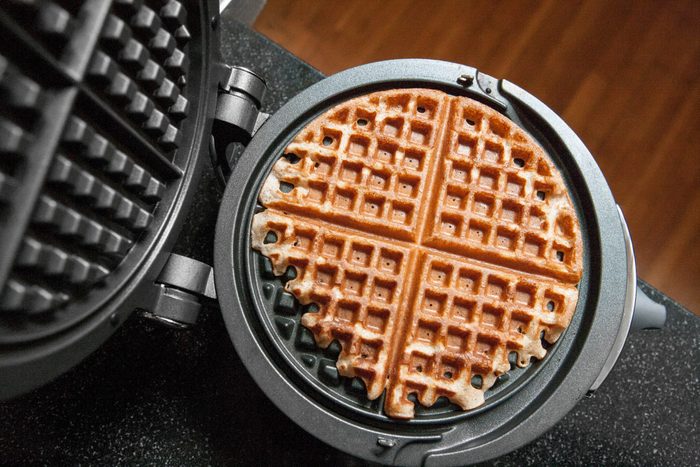
Rarely used kitchen gadgets
Maybe it’s a waffle iron or a bread machine you received as a wedding gift and never unboxed. Or an old coffee maker you’re keeping just in case the good one breaks. Countertop appliances that never see the light of day need to go. This also goes for that ice cream maker and panini press you were so excited about but never found the time to use. Trust me—you’ll never miss them. Most local donation stores will accept them.
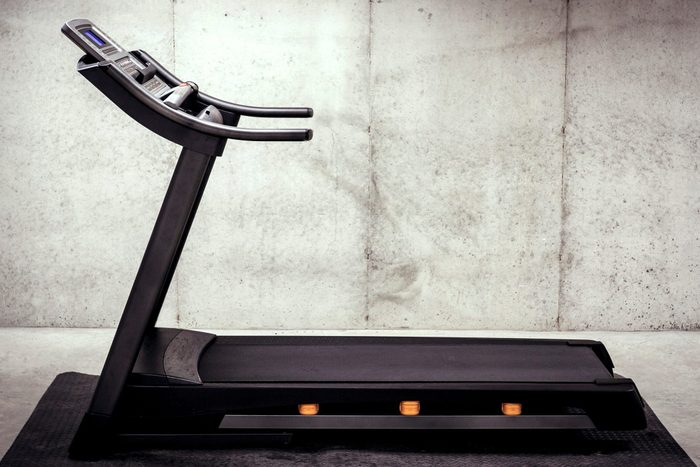
Exercise equipment that’s collecting dust
Seriously, when was the last time you used those dusty dumbbells? Did you even remember they were down there? And if you’re using your treadmill as a drying rack, it’s time to toss it and any other exercise equipment you’re not using. The good news is that dragging it up out of the basement counts as exercise! While you’re on a decluttering kick, here are some ways you can declutter your kitchen.
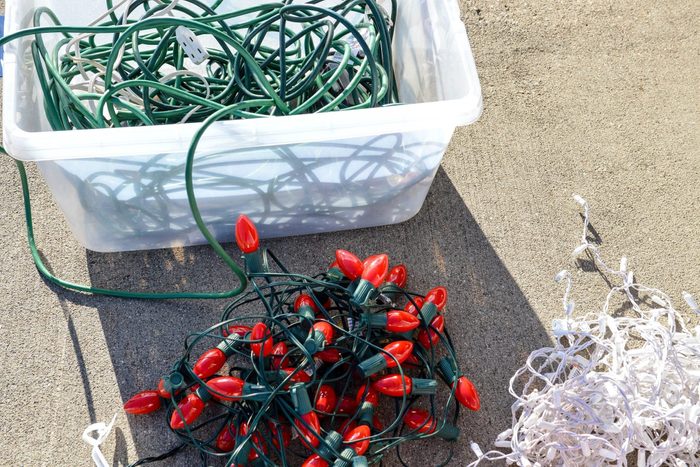
Broken holiday lights
Almost every basement contains at least one broken strand of holiday lights. Give up the dream that you’ll ever get them to work again and throw them out. This is also the time to toss the popped inflatable holiday lawn decorations and that pre-lit reindeer whose left leg has gone missing. Some home improvement stores collect broken holiday lights. Or you could mail your lights to Holiday LEDs for recycling year-round and in exchange for a coupon. Pare down to only the working decorations.
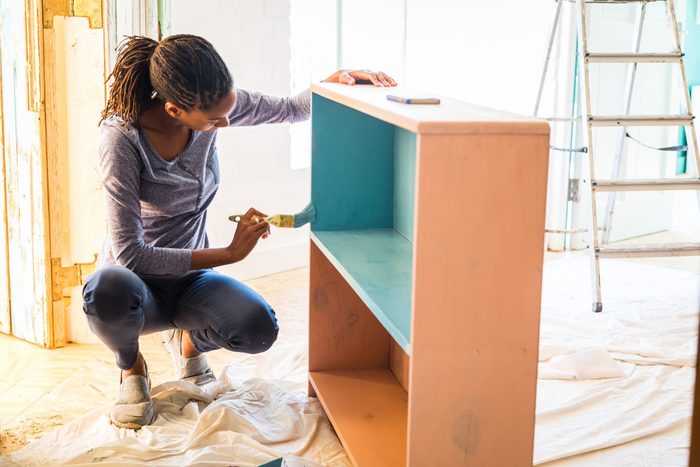
Home renovation remnants
Are you hanging onto a few floor tiles from a bathroom renovation, two renovations ago? Or a mostly empty can of house paint that doesn’t look like it matches any room in your home? These home improvement leftovers, including scraps of carpeting, must go. If they are in reasonable shape, consider donating them to the Habitat for Humanity ReStore. Avoid buying more of these common items that cause clutter.

Games with missing pieces
Putting together a 1,000-piece puzzle only to realize you only have 999 pieces isn’t much fun. Sure, you could color in a tiny piece of paper to complete the puzzle, but will you really? And what about that Monopoly set that’s now missing the top hat and the race car? It’s time to say buh-bye to that set and any other board games that are missing pieces. Believe it or not, you can cash in on your clutter by selling random pieces on Etsy. These are the secrets personal organizers will never tell you (for free, that is).
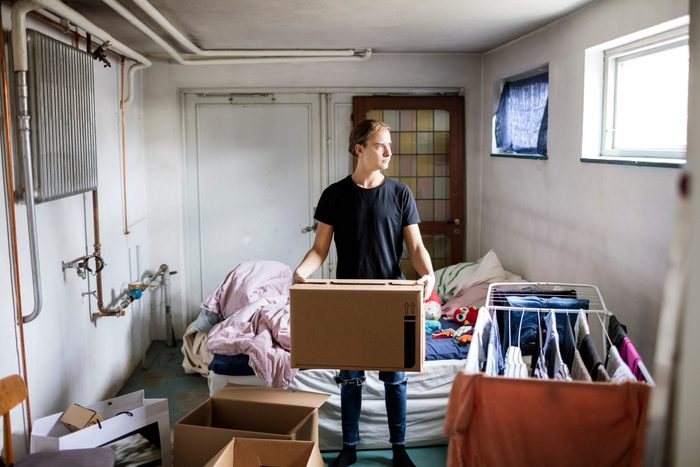
That random box of stuff
At some point, we’ve all experienced the mystery box. It’s the one unlabeled box that’s been sitting in the basement for years. You may have moved in with it and just never unpacked it—possibly more than once. No one knows what’s inside, yet you keep the box. Anything that’s been left untouched for that long isn’t needed and therefore can be tossed immediately.
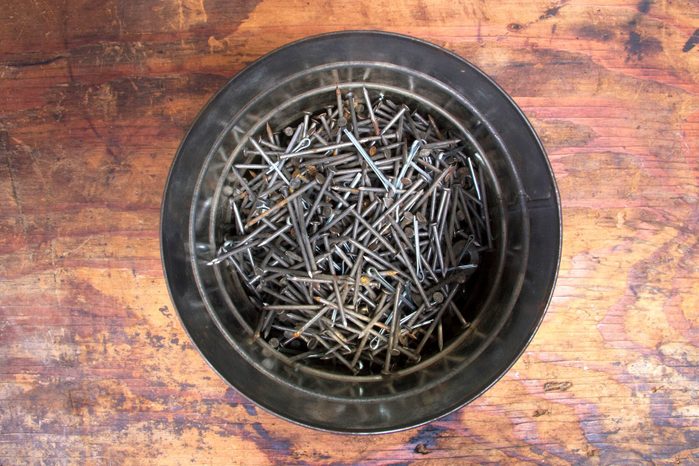
Coffee cans full of nails
Most of us have a coffee can, or ten, filled to the brim with rusty nails and screws. Pare down the ridiculous quantity of hardware—you can’t possibly have a need for every nut and bolt, especially ones that aren’t even in good shape. Also toss dried-out super glue and cheap clamps that don’t align properly.
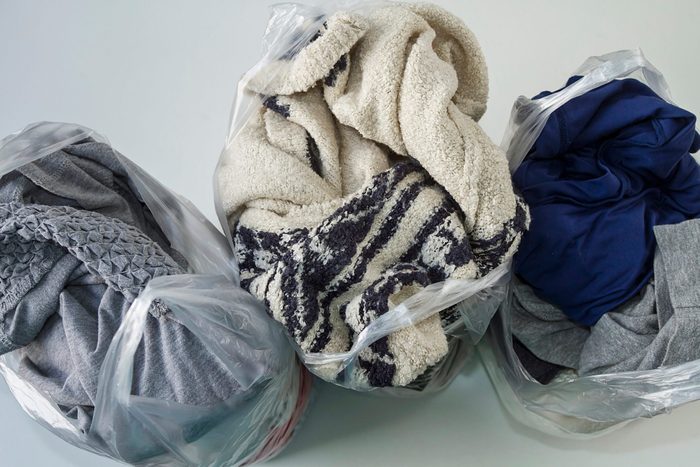
Someone else’s stuff
Your basement may have inadvertently become a storage unit for someone else’s stuff. Maybe that person left it behind when they moved out. Or someone asked you to hold onto something with the intention of coming back for it. If it’s been a while, ask them to come collect their clutter so you can clear out space in your basement.
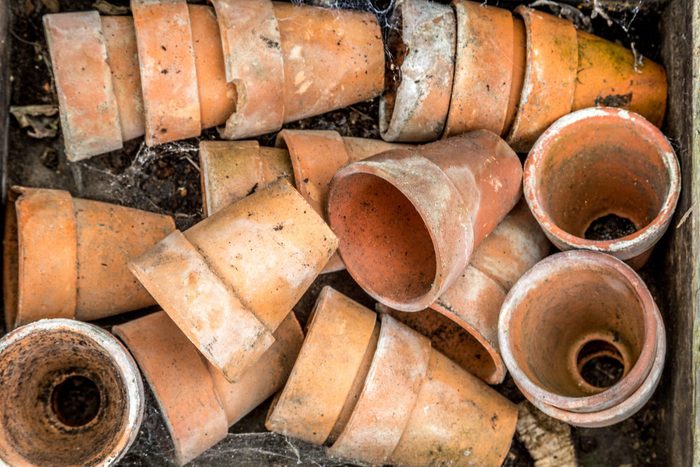
Cobweb-filled flowerpots
Unless you are opening a florist shop, you don’t need to keep more than a few vases and pots. Toss the cobweb-filled flowerpots, crumbling florist foam, and cracked vases. If you’ve amassed quite the collection, donate the ones that are still in good condition or call a local florist to ask if they want them. If you love fresh flowers, take a look at these flower subscription services.
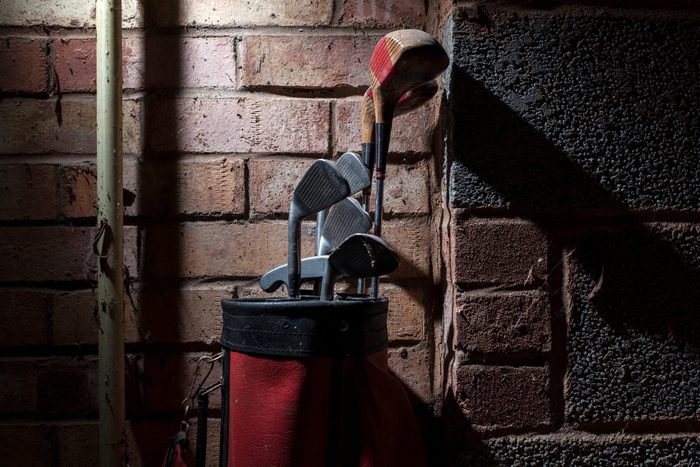
Old sports equipment
It doesn’t take long to accrue enough balls and bats to be able to outfit a whole team. You may have also accumulated equipment for sports you no longer participate in, like skiing or snowboarding. Or maybe the items were for kids who’ve now outgrown them. (Think: cleats, knee pads, and helmets.) Pass along the items to a friend or donate them.
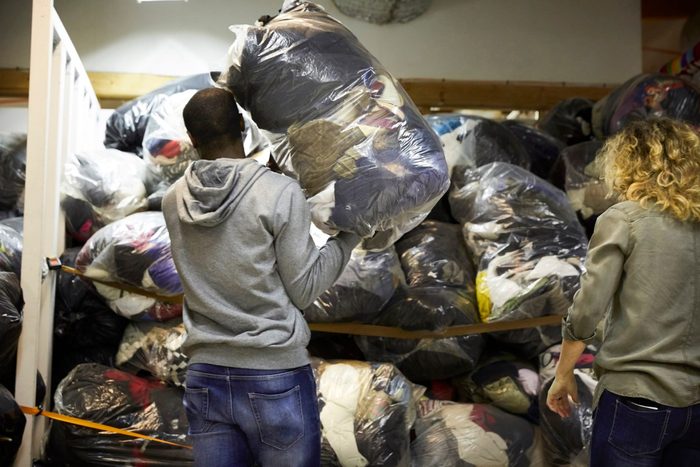
Items earmarked for donation
You already did the hard part: While decluttering other rooms in your home, you decided to give away certain items. The only problem is, you never got them out the door. They’re not doing anyone any good stuck in the basement, so schedule a pickup by a charitable organization. Do it now (yes, right now) so the items actually leave your house this time around. Learn how you can best help out your local food bank.

Old textbooks
Storing unused books, including textbooks, is a waste of space. Books do not store well in dark, damp spaces, like in unfinished basements. Many local libraries accept book donations, which they, in turn, sell to benefit the library. Of course, recycle any books that can’t be salvaged.
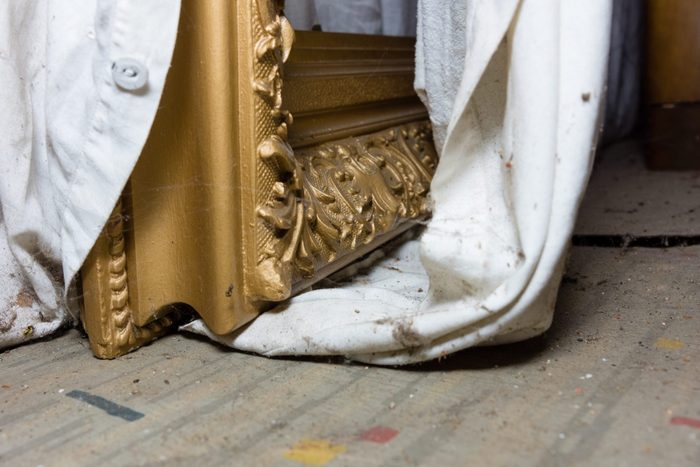
Framed posters and paintings
If it isn’t on the wall now, there is most likely a reason. If you aren’t displaying that canvas painting, poster, or piece of metal art, then out it should go! A sturdy picture frame is one of the valuable items you should look for at Goodwill.

Items you meant to sell
The time has come to toss the things you’ve been saving for a future garage sale that’s never going to happen. The truth is, letting that stuff sit in the basement and get dusty for months hasn’t made it more valuable. You’ll find great value in reclaiming space in your basement by letting it go.

Half-finished craft projects
Unfinished craft projects tend to be cast aside, left to collect dust in the basement. Unfortunately, starting a craft project is usually much more fun than finishing it, and you certainly won’t be more inclined to complete that needlepoint, cross-stitch, or quilt by hiding it in the basement. Craft a clutter-free basement by throwing away these forgotten items. These tips will help you organize your bedroom in an hour.
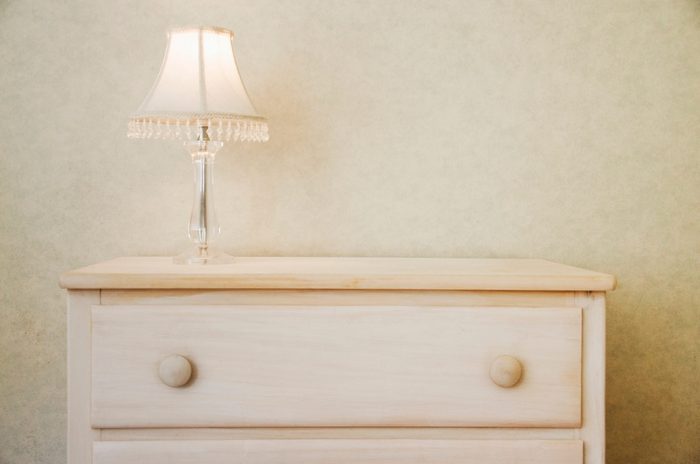
Spare dresser
You may have inherited furniture, upgraded but kept the old one, or picked up a piece curbside with plans to refinish it. And now your basement looks like a furniture store. These pieces tend to degrade in storage. Sell, donate, or pass them along to someone who needs the pieces you have to share.
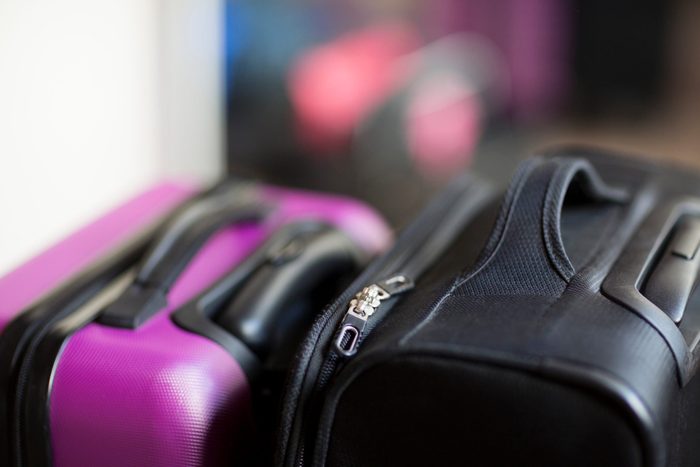
Old luggage
It’s time to toss suitcases and carry-ons that have taken one too many trips. Retire broken pieces like luggage with wheels that don’t roll, cases with cracked telescoping handles, or busted zippers.
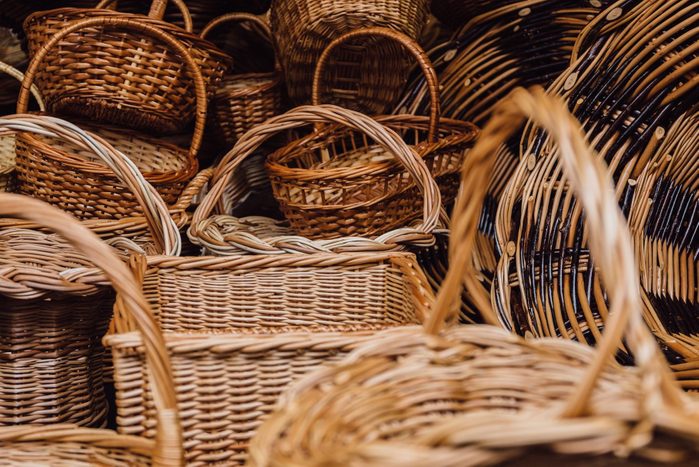
All the baskets
Wicker doesn’t last forever. It’s time to throw away all the brittle and broken baskets—the tall ones, the small ones, the seasonal ones, and the ones you can’t remember where they came from. Donate any that are still in good shape. And if you have a picnic basket, unless you picnic regularly, let it go and use a cooler instead. Here are the best organization tips from the pros.

Party supplies that aren’t in perfect shape
Leftover party supplies need to go, especially the crumpled ones. This includes crushed party hats, blowers that don’t blow, and crinkled crepe paper. Say goodbye to the torn tablecloth and the Happy Sweet 16 banner from a decade ago. Use up any leftover themed paper goods like plates, napkins, and cups, and start fresh for your next celebration. Here are the best birthday party decorations to buy.
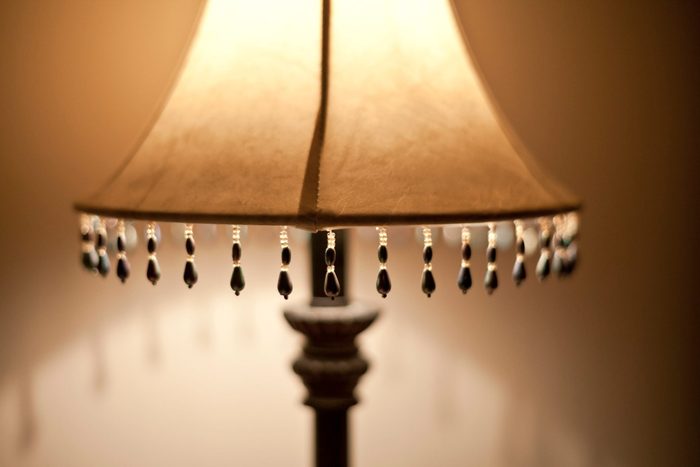
Old lighting fixtures
It is all too common to find unused light fixtures hiding in the basement. Lamp bases, random lampshades, or even a ceiling fan or wall sconce. Whether you upgraded when you moved in or you’ve made some design changes in the last few years, chances are you saved the old one just in case. But remember: If you liked it or it worked properly, you wouldn’t have replaced it, so throw it out.
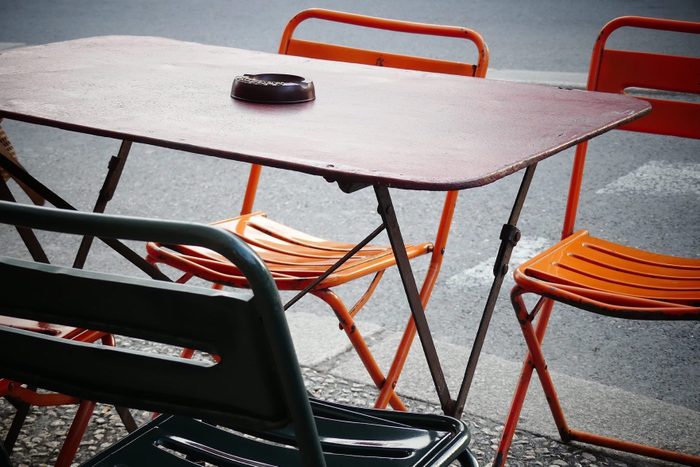
Rickety card tables
Pieces of flimsy, foldable furniture need to go—even the ones you’re keeping in case the need arises for extra seating options. Unstable furniture like tables without locking legs can be dangerous to use, and no one wants to sit on a rusty or uncomfortable folding chair. Throw them all out of the basement and don’t look back. Check out these stellar organization tips from Marie Kondo.
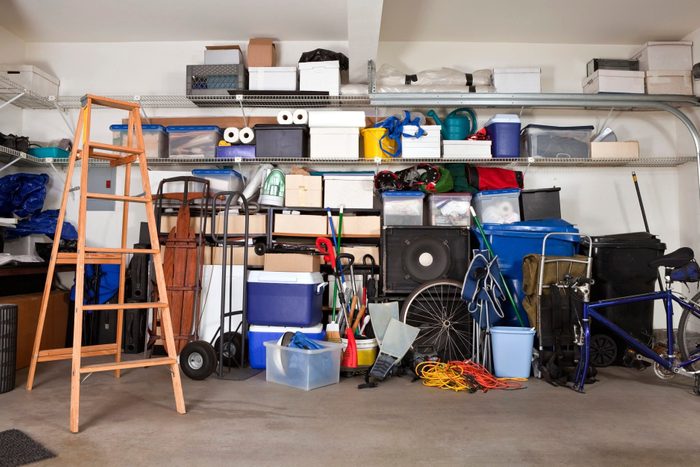
Organizing equipment that didn’t quite work
There’s a good chance you bought something to help you get organized at some point that either didn’t work or you stopped using because you found something better. Now that solution has become part of your basement-clutter problem. Let it go regret-free because if you needed it, you would have come looking for it by now.
Next, read about these organization methods from around the world.















